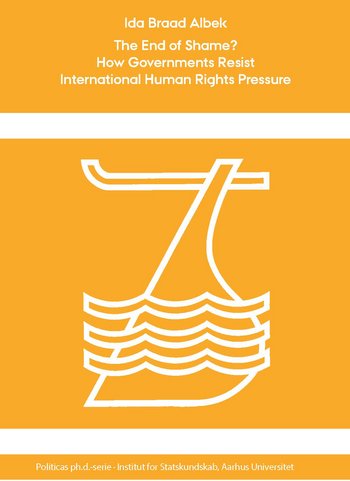Ida Braad Albek
The End of Shame? How Governments Resist International Human Rights Pressure

Human rights abuses continue to threaten the lives and freedoms of individuals around the world, and the international human rights community work tirelessly to reduce these abuses. One of their key strategies is to put violating governments under pressure by publicly criticising abuses. The hope is that this will encourage domestic anti-government mobilisation and ultimately compel the government to reduce its violations. Nevertheless, our understanding of the implications of international pressure for public opinion and government behaviour remains limited. How do citizens respond when their government is accused of human rights violations? Do governments defend themselves against foreign criticism, and does this reduce the pressure? How do shifts in global power—such as the rise of China—reshape the dynamics of international human rights pressure? This dissertation reveals that international pressure can have unintended effects and may undermine support for human rights norms. First, the dissertation finds no evidence that foreign criticism encourages anti-government mobilisation. Instead, criticism can provoke a defensive public response, weakening individuals’ support for human rights norms. Second, governments often respond to international criticism by crafting counter-narratives that successfully challenge the accusations and reduce the pressure. Third, China’s growing economic influence in Africa appears to weaken the impact of human rights pressure from Western states. This dissertation challenges the conventional wisdom and highlights the risk of adverse effects of human rights pressure. In doing so, it calls for a more nuanced understanding of how such strategies function and for the development of more effective human rights policies.
![]() Ophavsretten tilhører Politica. Materialet må ikke bruges eller distribueres i kommercielt øjemed.
Ophavsretten tilhører Politica. Materialet må ikke bruges eller distribueres i kommercielt øjemed.